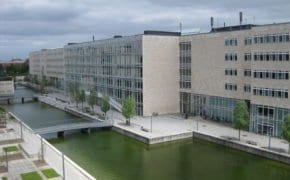Universitetsavisen
Nørregade 10
1165 København K
Tlf: 35 32 28 98 (mon-thurs)
E-mail: uni-avis@adm.ku.dk
Section
The fascinating tale of the Babylonian king Gilgamesh has been retold in a new translation by Assyriologist Sophus Helle. Dating from ancient times, the story of the restless hero/anti-hero remains relevant, but making it accessible to readers in 2019 required the talents of a modern poet

Not all the language-based small study programmes can boast a 100 year history. But Persian can. It’s longevity is partly due to the change in the subject's focus from the pre-Islamic period to the last 40 years of Iranian history.

An associate professor in Arabic has collected Islamic texts in East Africa to find out how they have spread. They are in an online database on South Campus.

The merger between the Department of Biology and Natural History Museum of Denmark has developed into »an intolerable situation«. This is according to head of the Department of Biology Niels Kroer in a newsletter. The trouble is that a couple of the museum's highest profile researchers – the professors Eske Willerslev and Tom Gilbert – seem to be looking for a new home for their research. Maybe at the Faculty of Health and Medical Sciences.

The Faculty of Humanities is to go through a new round of staff layoffs in April. DKK 31 million is to be cut - just on payroll.

Associate professor Katrine Worsaae lives for the months that she spends near water. Her life journey has led her down into underwater caves populated by strange animals like the Zombie Worm.

When University of Copenhagen (UCPH) researchers Rasmus Mariager and Anders Wivel presented their report on the Iraq war at the beginning of February, it led to intense criticism of the former centre-right government of Anders Fogh Rasmussen. According to political opponents, the report documented that the Danish government had misled the Danish parliament prior to the Iraq war. For Wivel and Mariager though, the assignment was never to pass moral or legal judgment on politicians.

Geology student Anna Øhlenschlæger has covered new ground in her research into 70 million-year-old trace fossils. Now she is writing a scientific article on the subject.

If you are a researcher at the University of Copenhagen (UCPH) and get fired, retire, or die, you also wave goodbye to your profile on the website.

Anthropologists are combining big data and their field notes to map out what it is that constitutes a good party. They hope to be able to test classic social science theories.
